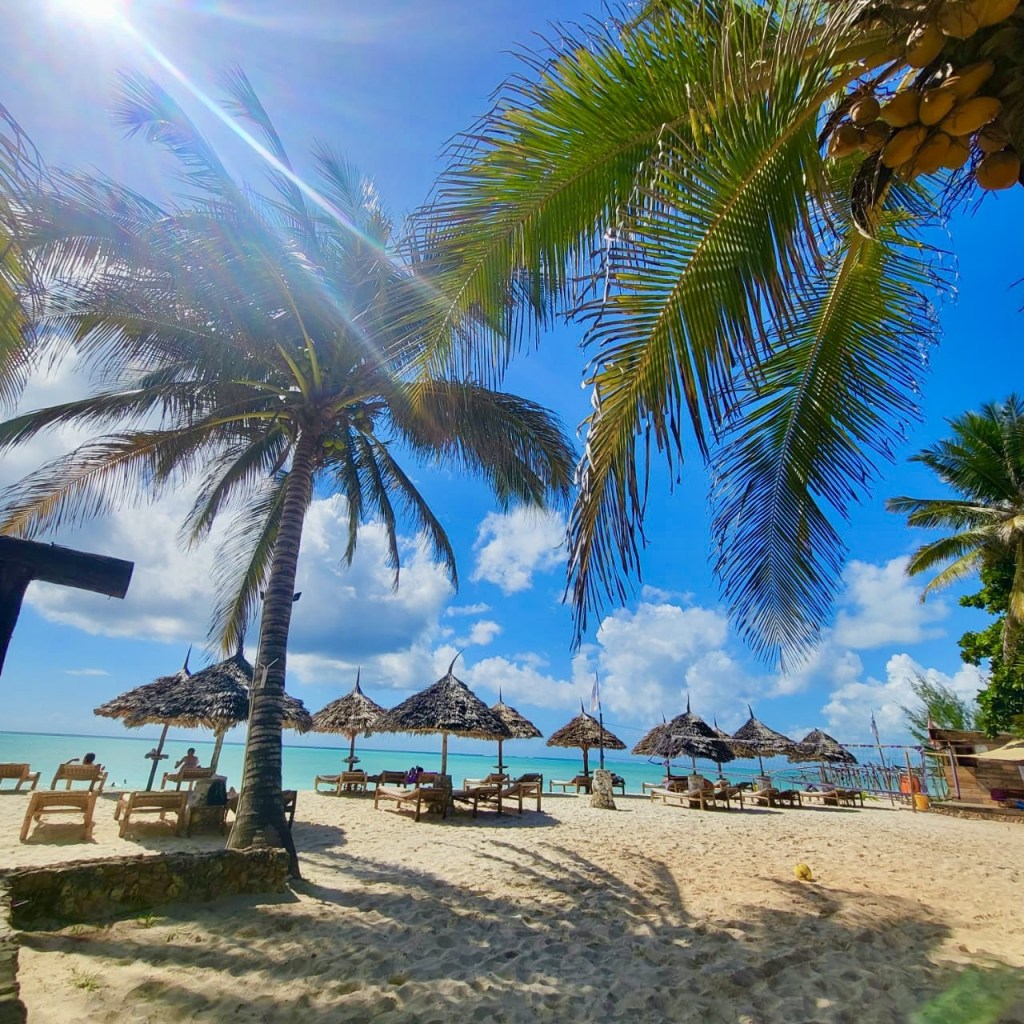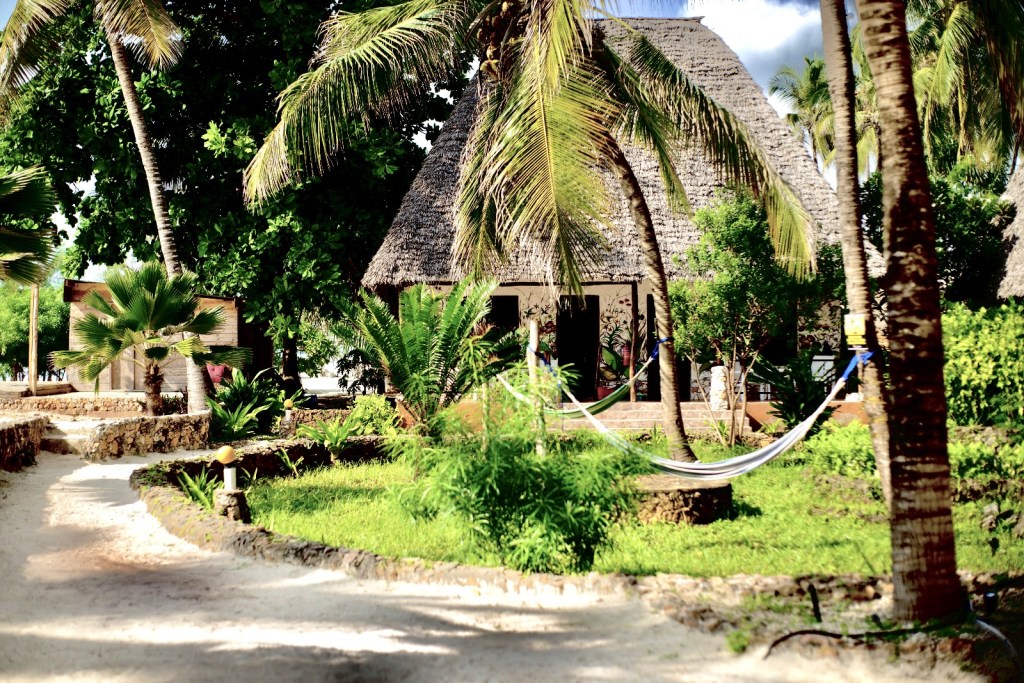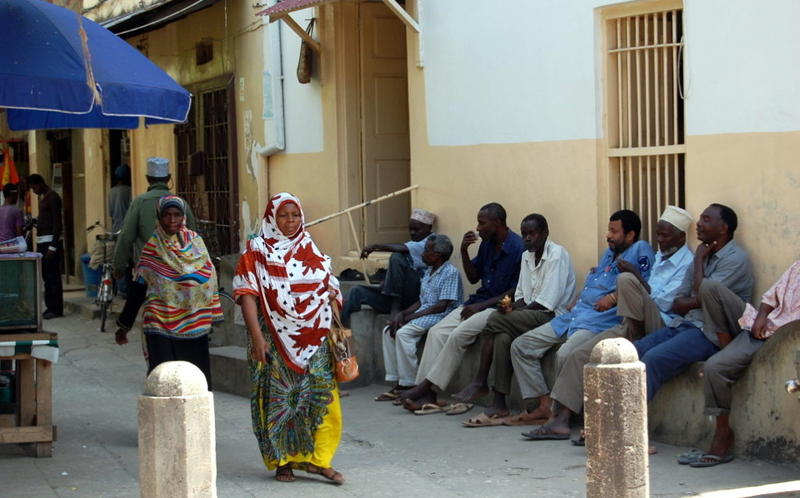Among the investors in recent years in tourism in Zanzibar are also Romanians. The famous British journalist Charlie Ottley, based in Romania, also noticed this, and that the other day he posted on Facebook that the resort where he stayed in Zanzibar is owned and managed by a Romanian businessman. HotNews spoke with the owner of the hotel to find out more details about the business done in this African archipelago.
- Mihai Ioniță, the owner of the resort where Charlie Ottley stayed, compares the economic environment in Zanzibar with that of Romania in the 90s: “Each authorization takes between 10 and 30 days, and the IT system is almost 0”.
- More than 3 years ago, Documented HotNews the tourism businesses developed by the Romans in this Indian Ocean archipelago. Meanwhile, their number has grown.
“During the first days in Zanzibar, I made a reservation in a hotel that, by chance, is owned and managed by Romans and very well arranged.” Charlie Ottley wrote on Facebook. The British journalist is known for documenting the diversity of Romanian landscapes in productions such as “Wild Carpathia” (2011) and “Aromele României” (2017), and was awarded the Order of Cultural Merit by the Government of in Romania in 2021.
One of the Romans who owned Mambo Ocean Resortis Mihai Ioniță (43 years old), an entrepreneur originally from Ploiesti, who has been living in Elche, in the south of Spain, for two years.
He says he spent many years in corporations, but became an entrepreneur 15 years ago when he launched an online market research business, which he still runs today. “At the time I had small businesses in HORECA and sports, but not very important, and for three and a half years, most of my time was dedicated to the tourist business, at the Mambo Ocean Resort in Zanzibar”, he says
About this Zanzibar?
The Romanian arrived in Zanzibar for the first time, at the end of 2020, during the pandemic, after looking for an unrestricted vacation spot.
“The first contact was a shock, and at the same time a pleasure. A shock as I realized the extremely low standard of living and the difficulties with the locals, and a pleasure as I realized that I was in a splendid island, a place where you are surrounded by “pole pole” (easy, easy in Swahili) and where time expands. No one is in a hurry, no one is agitated, no one makes plans too far, where everyone lives in the present, with joy and relaxation,” says Ioniță.
The Romanian says that he is passionate about holidays, and when he lived in Romania, he was the one who organized the holidays of the group of friends, down to the smallest details.
“I realized that it is something that I am very passionate about, that I would like to do seriously. Zanzibar was an extremely happy overlap between passion and a dream place,” adds the entrepreneur.
“It all started as a joke”

After the holidays at the end of 2020, Mihai returned to Zanzibar with two other friends, who meanwhile became his associates. “Everything started from a joke we made on vacation, when we said on our WhatsApp group that it would be interesting to try an exotic business. The joke was taken very seriously, and so we finished in less than two months all three back to Zanzibar, for the concession of the first resort”.
Once there, the three went in search of resorts that could be rented, and that’s how they found the current location – a plot of 12,000 square meters on the shore of the Indian Ocean, in the northeast of Zanzibar. At that time, the place had only 17 rooms and was in poor condition. The Romans built five more rooms, renovated the whole space, built a swimming pool, but also a restaurant on the beach of 200 square meters.
At the beginning, on site, once they found the land they had rented, a local manager helped them in the renovation process and put them in contact with the locals who, at their own pace, contributed to the reconstruction.
“Each authorization takes between 10 and 30 days and the IT system is almost 0”
“Opening a business in Zanzibar is a real adventure and a great test of patience and perseverance. It took about six months until I had all the documents in order – company, bank account, licenses, etc. – and the luck that and I had that, in the first half of the year, I was able to work for the local company of the person from whom I concession the resort”, explains Mihai.
He talks about how he came to befriend the locals, but also hired a local lawyer to better understand the system. However, it took a lot of online documentation, step by step, because things are not systematized and organized like in European countries.
“The state has no special openings, there is no online platform that includes all the necessary documents and you need a local lawyer who knows how to help you. Each document / license / authorization takes between 10 and 30 days and the system IT is almost 0.
To find out how to do all this, you have to dig all over the internet, collect data and put it together. And, even so, you may have the surprise after a year that you need not know what certificate, or license, that no one knew. It has nothing to do with Europe, but it is fixed as in Romania, at the beginning of the 90s”, explains the entrepreneur.
Lower payments than in Europe, but higher taxes

Mihai Ioniță lives in Spain, and his two associates in Romania. On site is Ana, a Romanian from Constanta who lives in Zanzibar and manages the resort.
“All marketing, development, sales, communication with tourists is done by the three of us, from Europe. Obviously, we go to Zanzibar quite often, sort of rotating, a few times a year, for make sure everything works as it should, according to the procedures. Fortunately for us, we work well remotely,” he continues.
Apart from Ana, the rest of the staff are local, and communication with them is easy, because in Zanzibar almost everyone speaks English. “We have adapted to their way of working. The locals are interested in working, but only at their own pace. I can’t work eight hours in a row, this is their culture, I understand. I work small shifts so that everyone is happy “.
As for the salaries, the Romanian says they are much lower than in Europe, although the taxes are not, especially for a foreign company. “In general, the fees for foreigners are about three times higher than for a local company. The profit tax for a company with local shareholders is 10%, while for one with foreign shareholders it is 30% .
Speaking of profitability, Mihai says that there are months like January, February, July or August, when the resort is always full, but also the so-called “low season”, like April, May or November.
“In the last year, about 50% of our tourists are Romanian”
Mihai Ioniță says that they mainly have European tourists and quite rarely Americans or Asians. “Many come to relax and disconnect and it’s a pleasure to be able to offer them an oasis of calm away from the hustle and bustle of Europe.”
The entrepreneur also talks about how, in the last year, more than 50% of the tourists were Romanian: “I am very happy when the tourists come back to us. We had tourists coming in the spring and in the autumn, and for me it’s a sign that they feel good with us and I’m happy,” he adds.
“The people of Zanzibar are very different”

The biggest challenge for anyone who wants to open a business here, says Mihai, is that he must understand the way of working of the locals, the employees, the authorities, but also the banks.
“You need to reset completely in relation to the European way of working. The people of Zanzibar are very different. You cannot call them lazy. Here, we Europeans are too agitated, nervous or in a hurry. That was the first thing I I had to learn when I started the business – to stop referring to European values and methods, but to understand that their way of living and working is totally different, and that I am the one who went to them, so i am the one who has to learn to function like them.
They are very relaxed people, very cheerful, who work in a “pole rhythm (slow, slow) and for whom it is always Hakuna Matata (no problem)”, declares the entrepreneur.
Ioniță confesses that Zanzibar is one of the few places on earth where you can find unspoiled nature, with completely wild beaches. But also with the poor, who know how to appreciate the present. “Zanzibar is the place where time expands and where you always have time to do nothing unhurried and where there is always time to relax.”
On the other hand, he continues, “the medical system is quite precarious, the infrastructure is almost non-existent, and also the social offer (there is no cinema, no theater or shopping center), apart from the resorts and the beach. There are things that in Europe we have at our disposal everywhere, and here they are completely missing.”
You need several hundred thousand euros to open a resort in Zanzibar
Mihai believes that many Romanians choose to open a business here, because it is an island that enchants you and leaves you with a feeling of always coming back. “I think that many Europeans, not only Romanians, were enchanted by the possibility of living simply, healthy and beautiful, in an exotic place. That’s why they preferred to give up the European “comfort”, in front of a life in a paradise that is poorer materially, but richer in spirit.
Speaking of that, he says that he knows many of the Romanians who have business here, they often communicate with each other, and when they need to ask for advice or help.
The entrepreneur believes that whoever wants to move here must have a certain personality, “a man who does not value material goods, who can do without European comfort, but who knows how to enjoy the ocean, the beach, the people and, in general, of simple and basic things.”
For those who want to open a business, he emphasizes that it depends a lot on the financial preparation they have, but also on the willingness to participate in the business. “$10,000 can be enough to open a bar on the beach, while a resort can cost hundreds of thousands of euros,” says Ioniță.
Finally, as a piece of advice for future entrepreneurs, Mihai says: “It is necessary to arm yourself with a lot of patience, with an extreme amount of perseverance and not to have fast expectations. In addition, it is necessary to read everything possible to the way of life and work in Zanzibar, but also of the authorities. They better study the laws, get a local lawyer, make sure you find someone you trust, and then just go.”
